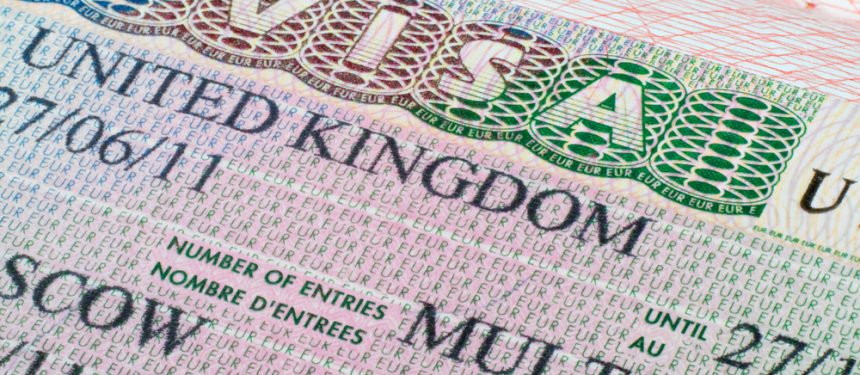UK boarding schools claim to have lost hundreds of thousands of pounds as a result of a Tier-4 visa rule that prevents them from admitting new international students while they await re-inspection for compliance issues.
News and business analysis for Professionals in International Education
Have some pie!
Re-inspection policy for Tier 4 risking financial health of UK schools
 Various schools are querying the reasons for warning notices sent to DfE, which trigger a freeze on new enrolments. Photo: www.gov.uk
Various schools are querying the reasons for warning notices sent to DfE, which trigger a freeze on new enrolments. Photo: www.gov.uk Boarding schools in the UK are inspected every three years to make sure they are compliant with the Independent School Standards Regulations, with a failure to meet standards resulting in a warning notice by the DfE.
“Sometimes the DfE will stretch it out to seven or eight months”
After a school is given a warning notice, its Confirmation of Acceptance for Studies allocation is set to zero, meaning it cannot admit any new students on Tier 4 visas.
The DfE usually requires the school to draw up an action plan to address any areas of non-compliance before being re-inspected, and as long as it is found to be compliant, the CAS allocation is returned.
However, the long waiting time between the issuing of the warning notice and re-inspection is causing serious financial problems for schools who are dependent on income from new international students.
“The schools have no ability to influence the timing of re-inspections,” Peter Woodroffe, deputy chief executive officer at Independent Schools Association told The PIE.
“Sometimes the DfE will stretch it out to seven or eight months. I’ve got an international boarding school on the south coast that told me they had lost £400,000 which was about 20% of their income that year, and that was a big hit.
“I’ve got another boarding school over in the West of England that said that it probably cost them around half a million pounds.”
One of two organisations that are commissioned by the DfE to inspect schools is the Independent Schools Inspectorate.
Mike Oliver, principal of Brooke House College and an inspector for ISI told The PIE that the freezing or zeroing of the CAS allocation could mean business closures for some international schools based in the UK.
“I know one man who put his heart and soul into his prep school in the south of Yorkshire. It had about 160 pupils and he said, ‘I do not have the financial wherewithal to be on top of every policy and change and implementation- it’s just going to kill the school’,” explained Oliver.
In the last 18 months, the DfE has been giving out six or seven enforcement notices every month
A spokesperson for ISI acknowledged the potential problems that a school might face as a result of the zeroing of a CAS allocation.
“ISI’s purpose is to enable children to be safe, well-educated and to thrive,” they told The PIE.
The spokesperson added that ISI understands that the withdrawal of Tier 4 licences “causes schools tremendous problems” and regularly speaks with the school associations about these.
“However, as a professional and independent inspectorate, we inspect a school to assess whether it is meeting the Independent Schools Standards.
“We do not, and should not, consider the commercial consequences on the school of our judgements,” they said, explaining that between 2018 and 2019, the compliance rate for ISI inspections was 88%.
A spokesperson for the DfE told The PIE that it is a school’s responsibility to ensure they are meeting the necessary standards.
“Where they fail to do so, it’s right that they should face action – part of which is preventing the school from admitting new students who are on Tier 4 visas,” they explained.
“The timings of inspections are based on action plans submitted by the school in question, and enable adequate time for schools to make the improvements required.”
However, the incidents that result in a non-compliance verdict from inspectors have also been called into question.
ISA’s Woodroffe said that within the past two years, the DfE has changed its approach on how it gives out its enforcement notices.
“In the past, if it was a serious incident the DfE would send out an enforcement notice,” he said.
“However, in the last 18 months, the DfE has been giving out six or seven enforcement notices every month instead of maybe one every three months.
“Even if a school makes the smallest administrative error, that’s a failure in safeguarding and that’s a notice to improve from the DfE,” Woodroffe noted.
“Even if a school makes the smallest administrative error that’s a failure in safeguarding”
Chairman for The Council of Independent Education and Principal of Bath Academy, Tim Naylor, echoed this concern.
“Of course schools need to put their house in order in whatever they are not compliant about, especially if it has anything to do with safeguarding,” he said.
“But at the same time, is it really a safeguarding issue or is it more of a clerical issue that can be cleared up very quickly?”
On this point, a spokesperson from ISI said that their inspectors take into account the notion of ‘materiality’, which means that a small, correctable error in an otherwise effective system does not necessarily trigger a judgement of non-compliance.
Still looking? Find by category:


